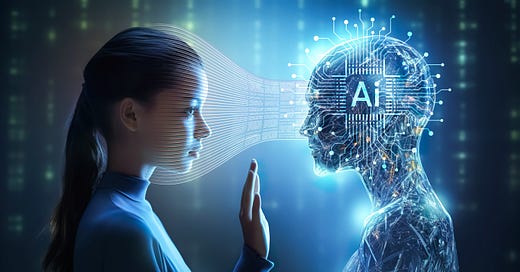In the era where Artificial Intelligence (AI) and social engineering have taken center stage, the cultural landscape of our society has undergone a profound transformation. This shift, while celebrated by some as a march towards progress, carries with it significant undertones of manipulation and dehumanization, a perspective that demands a closer examination.
Artificial Intelligence: A Pandora's Box?
At its core, Artificial Intelligence (AI) represents the simulation of human intelligence processes by machines, especially computer systems. These processes include learning, reasoning, and self-correction. AI has been heralded as a breakthrough, promising efficiencies and advancements in fields ranging from healthcare to transportation. However, beneath this veneer of progress lies a more troubling narrative.
The integration of AI into everyday life has not been without its costs. The technology, in its relentless march forward, has begun to erode the very fabric of human interactions, reducing complex emotional exchanges to mere data points that can be analyzed, predicted, and manipulated. This depersonalization of human experiences under the guise of convenience and efficiency represents a significant cultural shift towards a society where human value is increasingly quantified by algorithms
.
Social Engineering: The Art of Manipulation
Social engineering, in this context, refers to the psychological manipulation of people into performing actions or divulging confidential information. It's a term that has found new relevance in the digital age, where personal data is the currency of choice, and influence is wielded not through direct coercion but through subtler, more insidious means.
The proliferation of social media platforms has only exacerbated this trend, creating echo chambers that reinforce existing biases and polarize opinions. These platforms, driven by algorithms designed to maximize engagement, often prioritize sensational content over factual accuracy, contributing to a culture of misinformation and division.
The Confluence of AI and Social Engineering
The intersection of AI and social engineering represents a potent tool for manipulation. AI's ability to process and analyze vast amounts of data at unprecedented speeds has made it an invaluable asset for those seeking to engineer consent or dissent, shaping public opinion with a precision and scale previously unimaginable.
This manipulation extends beyond the political arena, influencing everything from consumer behavior to social norms. Through targeted advertising and personalized content, AI algorithms create a curated reality for each individual, one that reflects not the richness of human diversity but a narrow interpretation based on past behaviors and perceived preferences. This digital echo chamber not only stifles exposure to differing viewpoints but also contributes to a culture of conformity and passivity.
The Dehumanization Effect
Perhaps the most insidious aspect of this cultural shift is the dehumanization that accompanies it. As AI and social engineering technologies become more sophisticated, the distinction between human and machine becomes increasingly blurred. People are reduced to datasets, their behaviors predicted and manipulated, their privacy invaded and commodified.
This dehumanization is not limited to the digital realm. The workplace, too, has felt the impact of AI, with automation replacing human labor in an ever-growing number of industries. While proponents argue that this frees up individuals to pursue more creative and fulfilling work, the reality for many has been job displacement and a loss of identity and purpose, contributing to a growing sense of alienation and disenchantment.
A Call for Reevaluation
The cultural shift brought about by AI and social engineering is not merely a technical evolution but a fundamental change in the way we perceive ourselves and others. It challenges the essence of human experience, transforming relationships, identity, and even our sense of reality.
As we stand at this crossroads, it is imperative that we critically evaluate the trajectory of our society. Are we willing to sacrifice the nuances of human interaction for the sake of efficiency? Can we accept a future where our desires and opinions are molded by algorithms, where the line between manipulation and persuasion becomes indistinguishably blurred?
While AI and social engineering hold the potential for significant benefits, their current trajectory points towards a future where humanity is secondary to data, where individuality is lost in the sea of algorithmic determinism. It is a future that demands our attention and action, lest we find ourselves in a world where the very qualities that make us human are rendered obsolete by the technologies we have created.





Frightening and no one is reacting to this issue.